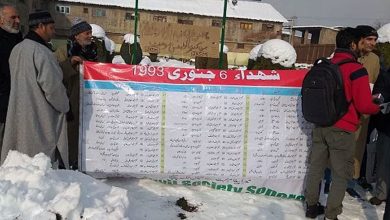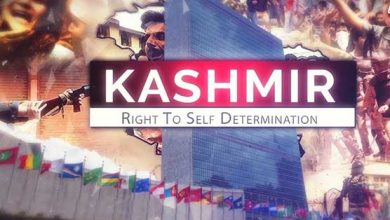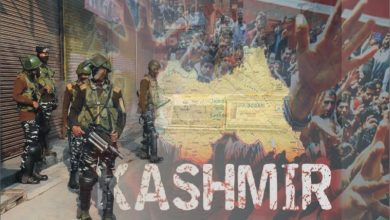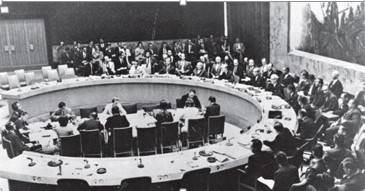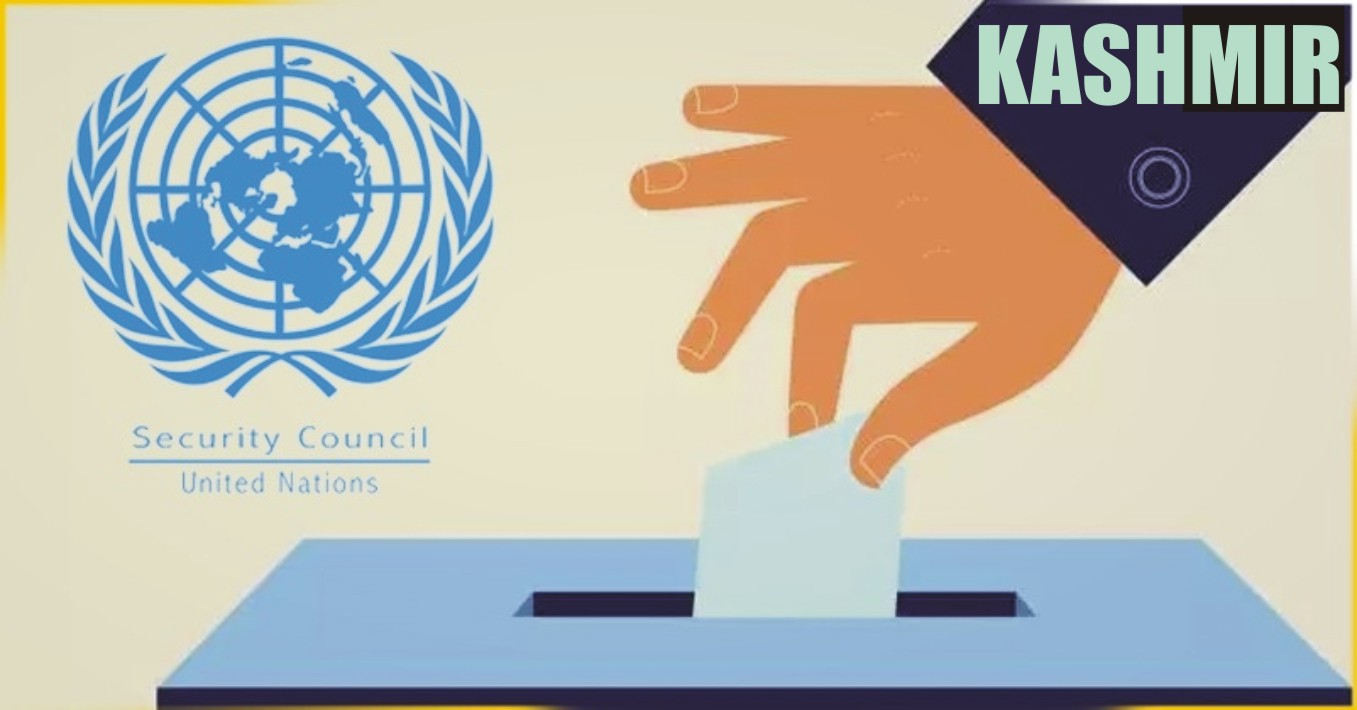 Kashmir’s struggle for self-determination, spanning over seven decades, has been marked by unfulfilled promises and unrelenting oppression. On January 5, 1949, the United Nations United Nations Commission for India and Pakistan (UNCIP) passed a resolution affirming the right of the people of Jammu and Kashmir to determine their future through a plebiscite Yet, despite this historic commitment, the people of Kashmir continue to suffer under systemic repression, with the promise of self-determination remaining unfulfilled.
Kashmir’s struggle for self-determination, spanning over seven decades, has been marked by unfulfilled promises and unrelenting oppression. On January 5, 1949, the United Nations United Nations Commission for India and Pakistan (UNCIP) passed a resolution affirming the right of the people of Jammu and Kashmir to determine their future through a plebiscite Yet, despite this historic commitment, the people of Kashmir continue to suffer under systemic repression, with the promise of self-determination remaining unfulfilled.
The conflict over Kashmir dates back to the 1947 partition of British India, which created tensions between India and Pakistan. In response, the United Nations intervened to mediate a peaceful resolution. The UN resolution aimed to establish peace by calling for a ceasefire and a plebiscite under UN supervision. However, successive Indian governments have failed to honor this commitment, prioritizing political interests over the will of the Kashmiri people. The promised plebiscite has never been held, leaving Kashmiris to navigate a landscape shaped by political maneuvering rather than their own aspirations.
The situation worsened dramatically in August 2019 when the Indian government revoked Article 370, stripping Jammu and Kashmir of its special status and autonomy. This move was accompanied by a heavy security lockdown and communications blackout, marking a significant turning point in the region’s struggle. The revocation not only undermined Kashmir’s political identity but also triggered demographic changes that threaten its cultural fabric. Today, Kashmir remains one of the most militarized regions globally, with over 700,000 Indian troops deployed. Under draconian laws such as the Armed Forces Special Powers Act (AFSPA) and the Unlawful Activities (Prevention) Act (UAPA), human rights violations—including arbitrary arrests, extrajudicial killings, and forced disappearances—have become widespread. The use of pellet guns against civilians has left many, especially children, with permanent injuries.
Media freedom has been severely curtailed. Journalists face harassment, arrests, and violence. A new media policy imposes censorship, blocking coverage of critical issues related to human rights violations and the Kashmir freedom movement. Protests are routinely banned, and those who dare to speak out face severe repercussions, including imprisonment and property seizures. The repression extends beyond Kashmir itself; refugees who fled during previous conflicts have been denied property rights and subjected to systemic intimidation. Families displaced between 1947 and 1954 have lost their right of return, leaving them in a state of permanent statelessness.
The socio-economic impact on Kashmiri youth has been profound. New Indian quota policies have drastically reduced educational opportunities by 54% and employment prospects by 36 percent for Kashmiri Muslims. These measures deepen socio-economic exclusion and hinder progress within the community. Students studying outside Kashmir often face harassment from extremist groups, making their pursuit of education perilous. The Jammu and Kashmir Reorganization and Reservation Amendment Bill of 2023 further marginalizes Kashmiri Muslims by reallocating political seats to non-Muslim communities, diminishing their representation in governance.
Despite these overwhelming challenges, Kashmiris continue to resist their oppression. Their demand for self-determination remains at the core of their struggle; over 500,000 lives have been lost due to conflict, yet the spirit of resistance endures. The international community’s silence on these issues has allowed India’s repression to continue unchecked.
The anniversary of the January 5 resolution should serve as a reminder of the unfulfilled commitments made to the Kashmiri people. The global community must no longer ignore this human rights crisis; it is time for meaningful action to uphold Kashmiris’ right to determine their future. The Kashmir struggle is not merely about political autonomy; it encompasses fundamental human rights, justice, and dignity. The world must act decisively to ensure that the long-delayed promise of self-determination becomes a reality for the people of Kashmir. Their sacrifices must no longer be overlooked. It is time for justice to be served.
The failure of the international community to address the plight of Kashmiris has enabled India to perpetuate its oppressive policies. The United Nations and world leaders must no longer stand by in silence. The right of the Kashmiri people to self-determination cannot remain a distant promise; it is time for the global community to take decisive action. The Kashmir struggle is a global human rights challenge, and it is incumbent upon the world to act. Only through diplomatic pressure and international recognition can the long-standing injustice be rectified. Now is the time to act, to ensure that justice for Kashmir is no longer delayed.
 (The writer is President of Sawera Foundation)
(The writer is President of Sawera Foundation)





